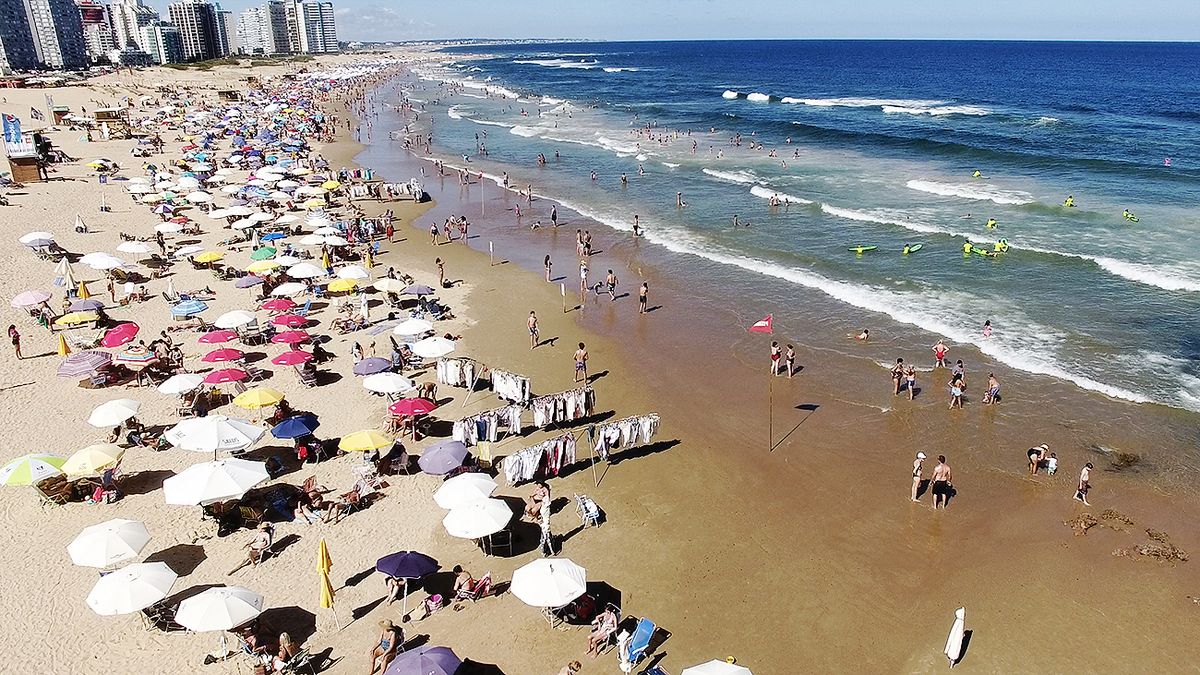The minister of Tourism, Tabare Viera, supported the “good expectation” that exists in Uruguay regarding the 2024 summer season based on the “level of reservations and rentals” already specified.
At the doors of a new summer season in the country, and as the numbers of the tourism sector begin to find a stable recovery after the impact of the Covid-19 pandemic, the figures of reservations and rentals They are a good sign for the government.
“The expectation is good. We don’t have the crystal ball of how good it will be, but due to the level of reservations that the operators and the cameras, At least until the end of January there is a very good level of hotel reservations and rentals,” Viera told Telemundo.
“I think we are going to have a good season, we have worked a lot in that sense with the departmental governments throughout the country and with the private sector”, added the minister.
Regarding February, Viera indicated that in 2024, the period of Carnival “falls early,” and recalled that they already announced “a promotion plan for domestic tourism, even in February with bonuses on hotel rates.” An example of them is the VAT reduction for Uruguayan residents that has been in force since last December 15.
“I think all this is going to give a good result”, remarked the head of the Ministry of Tourism that, once the season ends, he will leave the portfolio to dedicate himself to the campaign of his pre-candidacy for the presidency for the Colorado Party.
The tourist balance will be negative this year
Beyond the good expectations for the 2024 season, 2023 will end with a negative tourist balance for the first time in the history of Uruguay, due to the exchange rate difference with Argentina which led many Uruguayans to travel and consume in the neighboring country – discouraging domestic tourism; At the same time, many Argentines did not choose local destinations due to the economic context they are going through on the other side of the country. Silver river.
As for the figures, in the first nine months of 2023, 1,138 million dollars were received from tourism, but 1,512 million dollars were spent outside Uruguayan borders. Likewise, foreign exchange income was 24% less than in 2019, and 43% less than in 2017. Spending by Argentines, in particular, was reduced by 42%; while that of other nationalities in general fell by 36%. The data were worked on by the Center for Studies of Economic and Social Reality (Ceres) in its Tourist Activity Monitor 2023.
On the other hand, the amount of brazilians who chose the country to visit grew considerably during the year, compared to both 2017 and 2019. Thus, in the first 11 months of the year, there were 516,000 tourists from Brazil, 15% more than six years ago, and 22% more than four years ago.
This important influx of Brazilians—along with a general increase in tourists from the rest of the world—made it possible to reach the figure of 2,701,000 foreign visitors; which represents an increase of 9.4% compared to the receptive tourism of 2019. In comparison with 2017, however, the decline was 18%.
Source: Ambito




